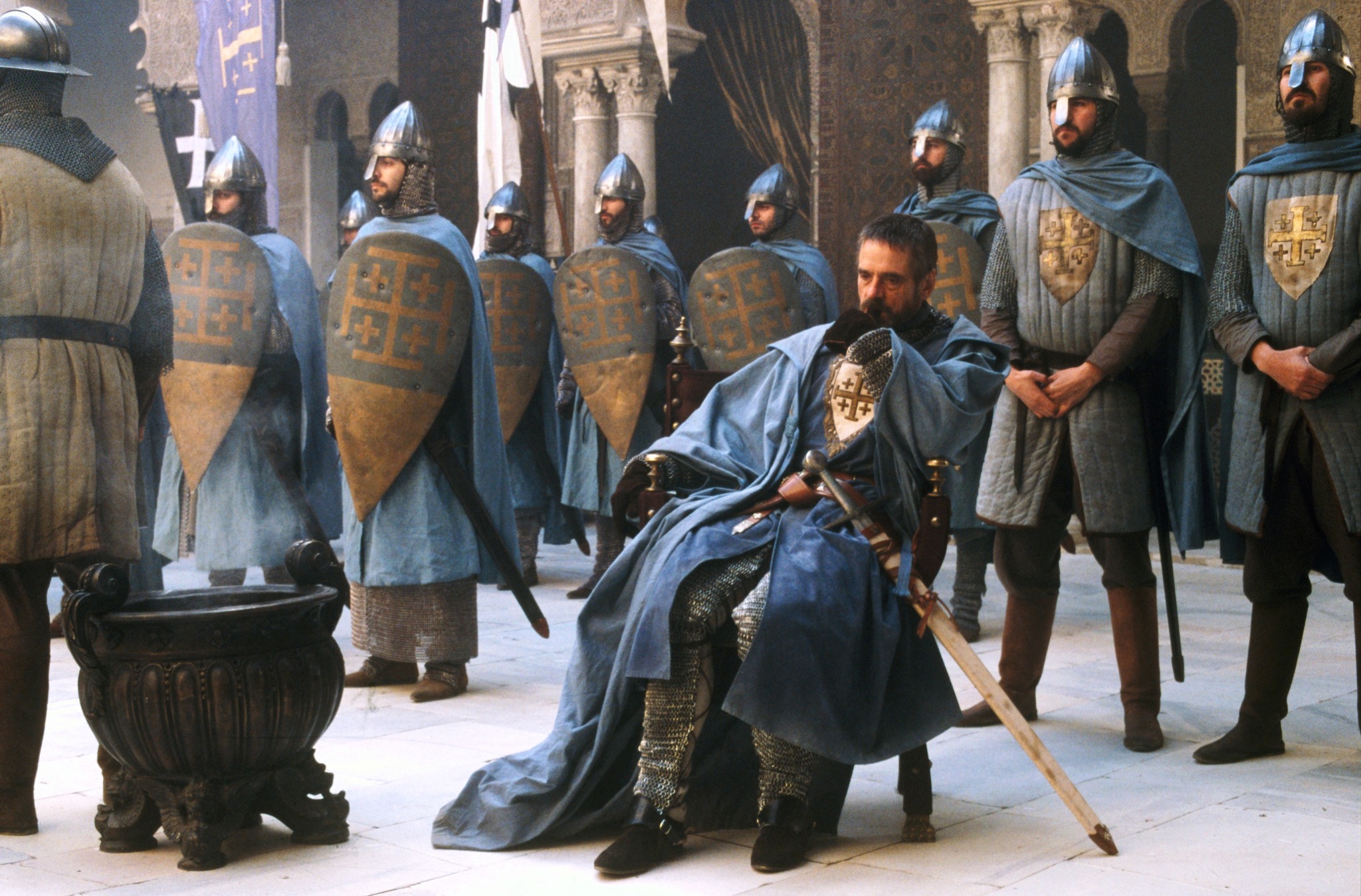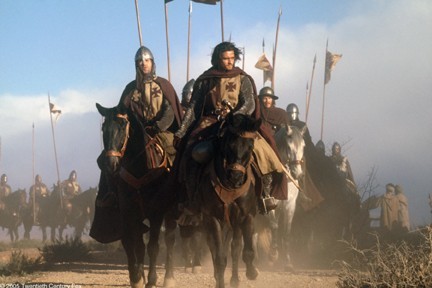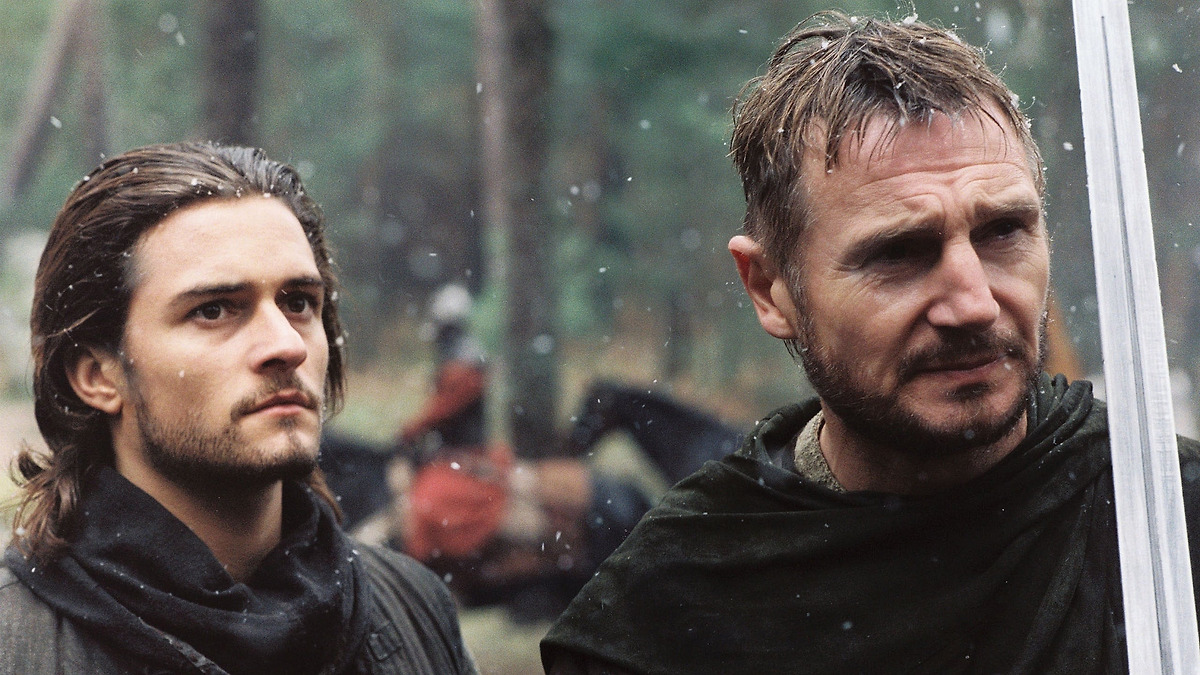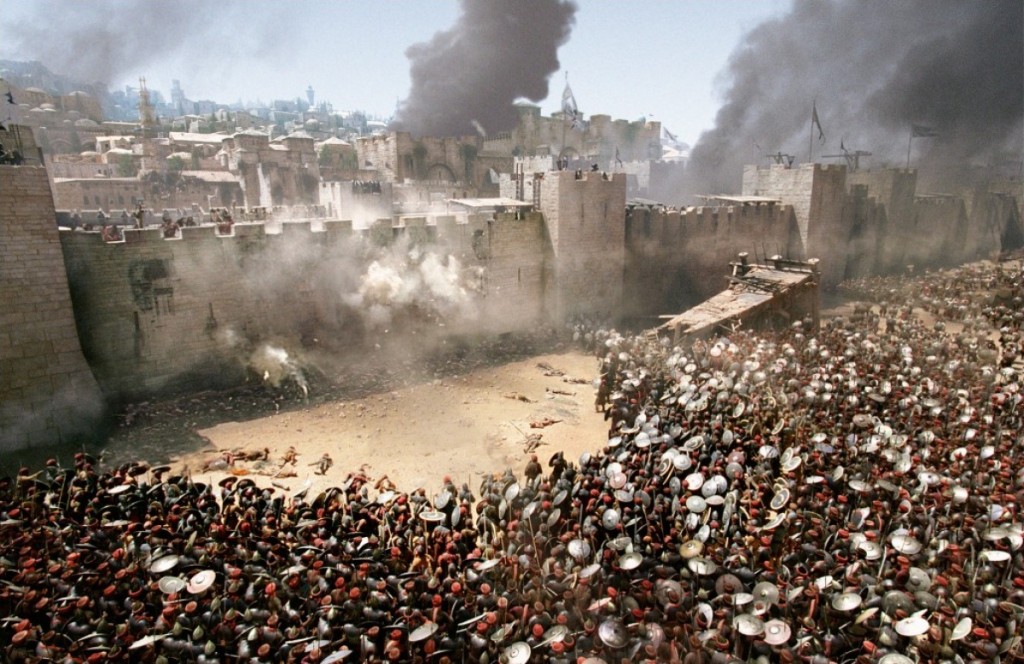“Kingdom of Heaven” (2005)

Ridley Scott’s epic historical drama “Kingdom of Heaven,” released in 2005, transports viewers to the tumultuous era of the Crusades, offering a sweeping narrative that blends historical fiction with thought-provoking themes of religion, politics, and human nature. Set during the 12th century, the film follows the journey of Balian of Ibelin (played by Orlando Bloom), a blacksmith who rises to become a noble knight amidst the backdrop of religious conflict in the Holy Land.
The story begins with Balian’s personal tragedy in France, which sets him on a path of redemption and discovery. He joins his estranged father, Baron Godfrey (played by Liam Neeson), on a pilgrimage to Jerusalem, where he becomes embroiled in the political intrigue and religious fervor of the Crusades. As tensions escalate between Christians, Muslims, and the power-hungry factions within each camp, Balian finds himself navigating a treacherous landscape where alliances shift like desert sands.

At its core, “Kingdom of Heaven” explores the clash of civilizations and ideologies during the Crusades, presenting a nuanced portrayal of characters who grapple with questions of faith, honor, and the consequences of their actions. The film challenges simplistic notions of good versus evil, portraying both Christian and Muslim leaders as complex individuals driven by personal ambitions and genuine beliefs.

Ridley Scott’s directorial prowess is evident in the film’s grand scale and meticulous attention to historical detail. From the sprawling landscapes of medieval Europe to the bustling markets and fortified cities of the Levant, the cinematography by John Mathieson captures the beauty and brutality of the era. Battle sequences are choreographed with visceral intensity, showcasing the chaos and carnage of medieval warfare while underscoring the human cost of conquest and crusade.

Orlando Bloom delivers a compelling performance as Balian, portraying a man torn between his desire for peace and his duty to protect the innocent. Liam Neeson brings gravitas to his role as Baron Godfrey, imparting wisdom and moral guidance to his son amidst the chaos of war. The ensemble cast, including Jeremy Irons as the pragmatic Tiberias and Eva Green as the enigmatic Princess Sibylla, adds depth and complexity to the film’s array of characters.
Thematically, “Kingdom of Heaven” delves into timeless questions about religious tolerance, the nature of leadership, and the pursuit of justice in an unjust world. Through Balian’s journey, the film explores the transformative power of conscience and the personal sacrifices required to uphold principles of honor and integrity in times of conflict.

The narrative is punctuated by poignant moments of introspection and dialogue that resonate with contemporary relevance, prompting viewers to reflect on the enduring legacy of religious conflict and the quest for coexistence in a multicultural world. Scott’s screenplay, enriched by William Monahan’s insightful dialogue, invites audiences to consider the complexities of history and the lessons that can be gleaned from the past.
“Kingdom of Heaven” received mixed reviews upon its initial release but has since garnered a dedicated following for its ambitious scope, thematic depth, and visually stunning depiction of the Crusades. The film’s exploration of moral dilemmas and the human condition continues to resonate with viewers, making it a timeless addition to the genre of historical epics.

In conclusion, “Kingdom of Heaven” stands as a testament to Ridley Scott’s ability to craft compelling narratives set against the backdrop of monumental historical events. Through its blend of spectacle and introspection, the film invites audiences to contemplate the complexities of faith, honor, and the pursuit of peace in an era marked by conflict and crusade.











